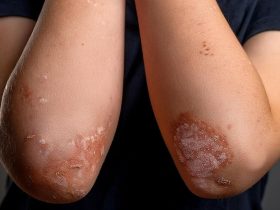Risk increased for attention-deficit/hyperactivity disorder, autism spectrum disorder, and intellectual disability
By Lori Solomon HealthDay Reporter
MONDAY, April 15, 2024 (HealthDay News) — Prenatal cannabis use disorder (CUD) is associated with a higher risk for subsequent neurodevelopmental disorders in offspring, according to a study presented at the annual congress of the European Psychiatric Association, held from April 6 to 9 in Budapest, Hungary.
Abay Woday Tadesse, from Curtin University in Perth, Australia, and colleagues examined the association between prenatal CUD and neurodevelopmental disorders in offspring. The analysis included administrative health data from 222,569 mother-offspring pairs (live births from January 2003 to December 2005).
The researchers found that offspring from mothers with prenatal CUD had an increased risk for attention-deficit/hyperactivity disorder (ADHD; adjusted risk ratio [aRR], 1.98), autism spectrum disorder (ASD; aRR, 1.94), and intellectual disability (ID; aRR, 1.46) compared with nonexposed offspring. There was also a significant interaction effect observed for CUD during pregnancy and maternal smoking with the risk for childhood neurodevelopmental disorders (ADHD: RR, 5.62; ASD: RR, 2.72; and ID: RR, 2.84). Lastly, there were significant associations between CUD and ADHD, ASD, and ID when interacting with low birth weight and premature birth.
“The increased risk of neurodevelopmental disorders in children of mothers diagnosed with prenatal cannabis use that we have observed in this study underscores the critical needs for preventive measures, including preconception counselling, to mitigate the potential adverse outcomes,” Tadesse said in a statement.
Copyright © 2024 HealthDay. All rights reserved.







